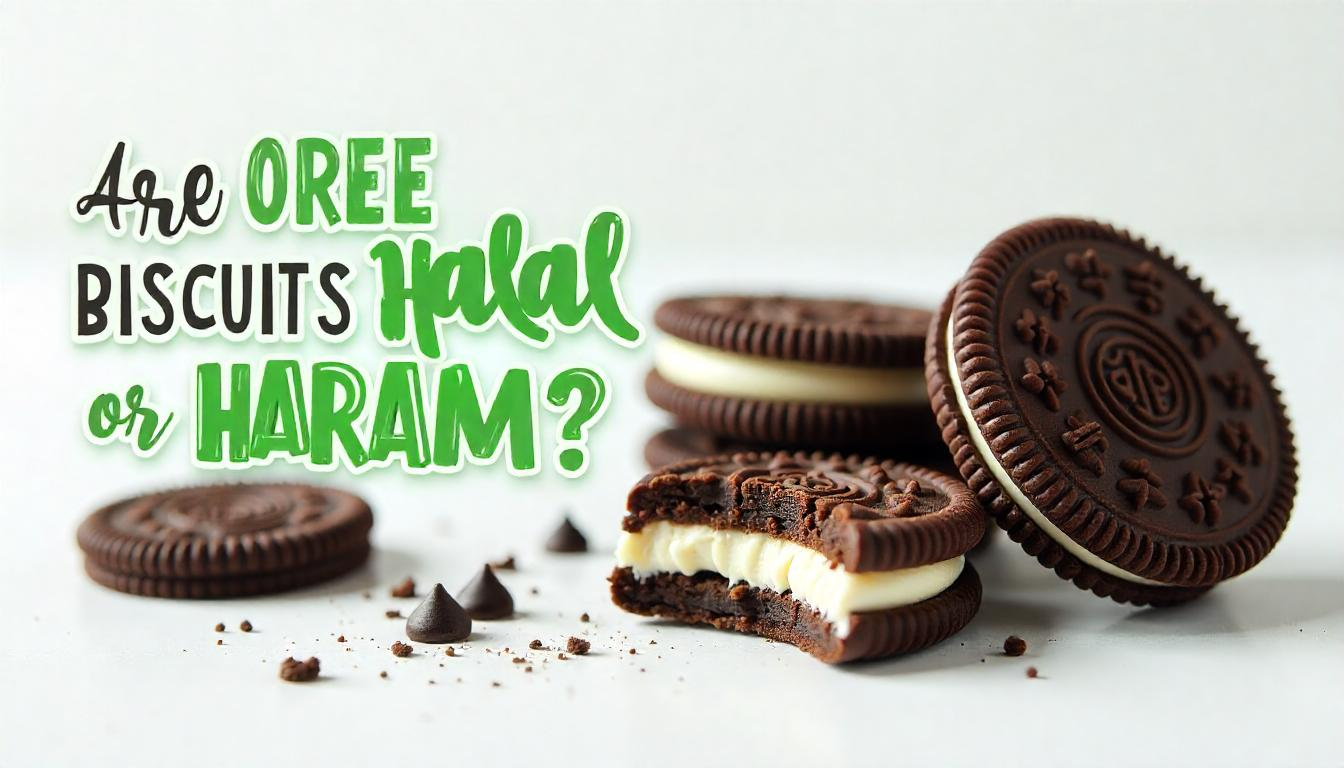Are Oreo Biscuits Halal or Haram? An Islamic Guide Step by Step

Strong 8k brings an ultra-HD IPTV experience to your living room and your pocket.
Oreo biscuits are among the most iconic snacks enjoyed by people of all ages across the globe. With their distinctive chocolate wafers and creamy filling, they have earned a permanent spot in pantries and snack drawers. However, for Muslims striving to adhere strictly to halal dietary laws, a crucial question arises: Are Oreo biscuits halal or haram?
This guide seeks to provide a comprehensive answer to that question by examining the ingredients, production process, regional certifications, and scholarly opinions related to Oreos from an Islamic point of view.
Understanding Halal and Haram in Islam
In Islam, dietary laws are an important aspect of a Muslim's daily life. The terms "halal" and "haram" refer to what is permissible and forbidden, respectively. For food to be considered halal:
- It must not contain any ingredients derived from pork or other prohibited animals.
- It must not include alcohol, whether as a main ingredient or as a trace used in flavoring.
- The food must not be contaminated by haram substances during manufacturing.
- The processing and equipment used must also follow halal standards.
Due to these guidelines, it is important for Muslims to critically evaluate processed or packaged foods like Oreo biscuits before consuming them.
What Are Oreo Biscuits Made Of?
Oreo biscuits are typically made from the following key ingredients:
- Sugar
- Unbleached enriched flour
- Cocoa (processed with alkali)
- Palm and/or canola oils
- Leavening agents (baking soda, etc.)
- Soy lecithin
- Salt
- Chocolate
- Artificial flavors
On the surface, none of these ingredients appear to be haram. Oreo’s parent company, Mondelez International, has stated in several countries that Oreo cookies do not contain animal-derived ingredients such as lard, pork enzymes, or alcohol.
However, this doesn't automatically make them halal.
The Issue of Emulsifiers and Flavorings
Some Oreo varieties may include emulsifiers (like lecithin or mono- and diglycerides) and artificial flavorings, which can sometimes be derived from animal fats or alcohol-based solvents. The source of these additives is often not mentioned explicitly on the label, making it difficult for consumers to assess permissibility without further inquiry.
Are Oreos Halal Certified?
The answer depends on the country of manufacture and sale. Here's how the halal status varies by region:
United States and Canada
Oreo products sold in North America are not halal certified, although the company claims they contain no animal-derived ingredients. The lack of certification leaves room for doubt, especially regarding flavorings and processing methods.
Europe
In Europe, most Oreo products are also not officially halal certified. Some flavors—such as Oreo Strawberry Cheesecake, Oreo Choco Brownie, Oreo Enrobed Milk & White, Oreo Crunchy Bites Dipped, and Oreo Cadbury Coated—are considered unsuitable for Muslims due to uncertain ingredients or preparation methods.
Middle East and Southeast Asia
In Islamic-majority countries like Saudi Arabia, Malaysia, Indonesia, and Pakistan, Oreo products are halal-certified. The manufacturer ensures the use of halal-friendly ingredients and processing in these regions, as per local halal certification authorities.
Concerns About Cross-Contamination
Even if ingredients are halal, cross-contamination during manufacturing can occur if the same equipment is used to produce both halal and non-halal items. This is particularly relevant in countries where halal compliance is not regulated by authorities.
Without a halal certification, there's no guarantee that the cookies were manufactured in a clean environment free from haram contamination.
Islamic Rulings and Opinions
Islamic scholars generally advise caution in such cases. According to the principle of "al-ihtiyat" (precaution) in Islamic jurisprudence, if there is reasonable doubt about the halal nature of a product, it is best to avoid it unless verified through trusted sources.
Some scholars permit products that are free from haram ingredients even if they are not officially certified, provided there's no strong evidence of contamination or forbidden substances. Others are more stringent and recommend consuming only those items that are clearly certified as halal.
What Should Muslims Do?
- To ensure compliance with halal dietary laws, Muslims are advised to:
- Read labels carefully – Look for halal certifications or suspicious ingredients.
- Avoid doubtful flavors – Stick to plain or original Oreos when in doubt.
- Check with the manufacturer – Contact Mondelez in your country for specific information.
- Follow local fatwas – Seek guidance from trusted Islamic scholars or halal authorities in your region.
Conclusion: Are Oreos Halal or Haram?
The answer is not black and white. Oreo biscuits are halal certified in some countries and not in others. While their ingredients are generally free from pork or alcohol, the absence of consistent halal certification, unclear sources of some additives, and potential for cross-contamination require Muslims to exercise individual discretion.
Note: IndiBlogHub features both user-submitted and editorial content. We do not verify third-party contributions. Read our Disclaimer and Privacy Policyfor details.







